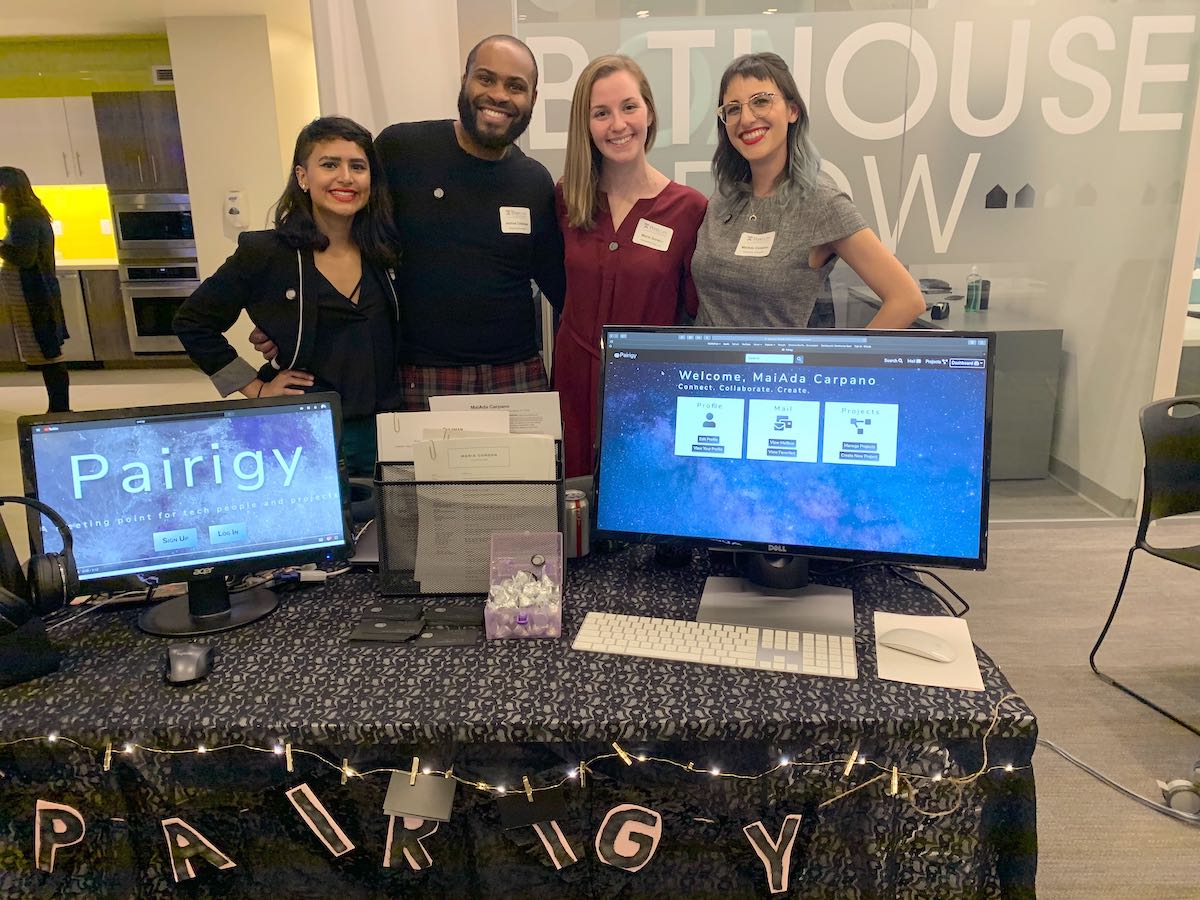
This editorial article is part of Technical.ly's Hiring Trends Month. Philly's NET/WORK tech jobs fair is Feb. 25.
It seems like every time we talk to someone in tech recruiting or hiring, we hear more and more about how the Philadelphia region has many more tech jobs available than qualified folks to fill them.
About a year ago, The Economy League of Greater Philadelphia found that Philly had added about 8,000 tech jobs since 2013. And on the national level, it’s projected that the country will have as many as 3.5 million STEM jobs available by 2025.
We’ve seen coding bootcamps, workshops and reskilling programs across the region for folks either looking to level up their developer skills or switch careers altogether and jump into the tech industry. And Thursday night at Independence Live, the most recent Penn LPS Coding Boot Camp cohort showed off the work they did over their 12- or 24-week program that taught frontend and backend development course for future full-stack software engineers.
Since the program launched in January 2018, it’s graduated more than 300 new developers who have gone on to work in dev departments at companies such as Comcast and Lockheed Martin, said Rita McGlone, the executive director of professional and organizational development at University of Pennsylvania’s College of Liberal and Professional Studies.
One group showed off their class project, Pairigy, a platform that matches developers looking to work together on projects. All four group members, who went through the part-time, 24-week course, are coming to tech from vastly different career paths.
MaiAda Carpano, a former middle school teacher who taught herself CSS as a hobby when she was younger, decided to pursue a dev career when she realized she didn’t have much room to move up at her school.
“I realized I wanted to be in a career where people would invest in me, and I thought back about what I loved besides teaching and it was building stuff,” she said.
Her project partner, Joshua Coleman, came to the program with a background in physical therapy and personal training.
“I was trying to think about how I could integrate tech into those things, changing healthcare websites or thinking of ways to get kids involved in checking on their health,” Coleman said. “And the more I got into it, the more I kind of fell in love with it.”
Coleman said he wants to eventually become an entrepreneur, but will first look for some in-house dev experience to further his skills.
Maria Gordon also came from a healthcare background — the mother of two was working toward her nursing degree but after having kids, didn’t want to return to traditional higher ed. Gordon said her husband always lamented about not getting into the tech field, so she began research into how she could gain tech skills.
She started doing online courses for HTML and CSS, but wanted something IRL. The structure of the bootcamp worked out great for her, she said.
“I’d be open to anything,” in the tech field, Gordon said. “I just want to get started.”
Gordon, Coleman and Carpano are all looking for some sort of dev position post-bootcamp, as are most of the graduates, McGlone said. But Catherine Gomez, the fourth creator of the Pairigy project, plans to use her new dev skills in a different way — applying them in her career as a new media artist.
“This is more of leveling up in skill for me,” Gomez said. “I work with tech already, a lot of image making, trying to dabble in VR and AR. And I was at the point that I had to depend on a lot of male counterparts to fully build everything I wanted, and to do the instillations and exhibitions that I wanted, and I was tired of doing that.”
Overall, the group members say they feel very optimistic about entering the tech industry or using their new skills to advance in their careers.
“Looking at where we started and where we are now, being able to talk fluidly about tech is really amazing,” Coleman said. “It’s still kind of mind blowing to think about.”
Join the conversation!
Find news, events, jobs and people who share your interests on Technical.ly's open community Slack

Philly daily roundup: Earth Day glossary; Gen AI's energy cost; Biotech incubator in Horsham

Philly daily roundup: Women's health startup wins pitch; $204M for internet access; 'GamingWalls' for sports venues

Philly daily roundup: East Market coworking; Temple's $2.5M engineering donation; WITS spring summit


